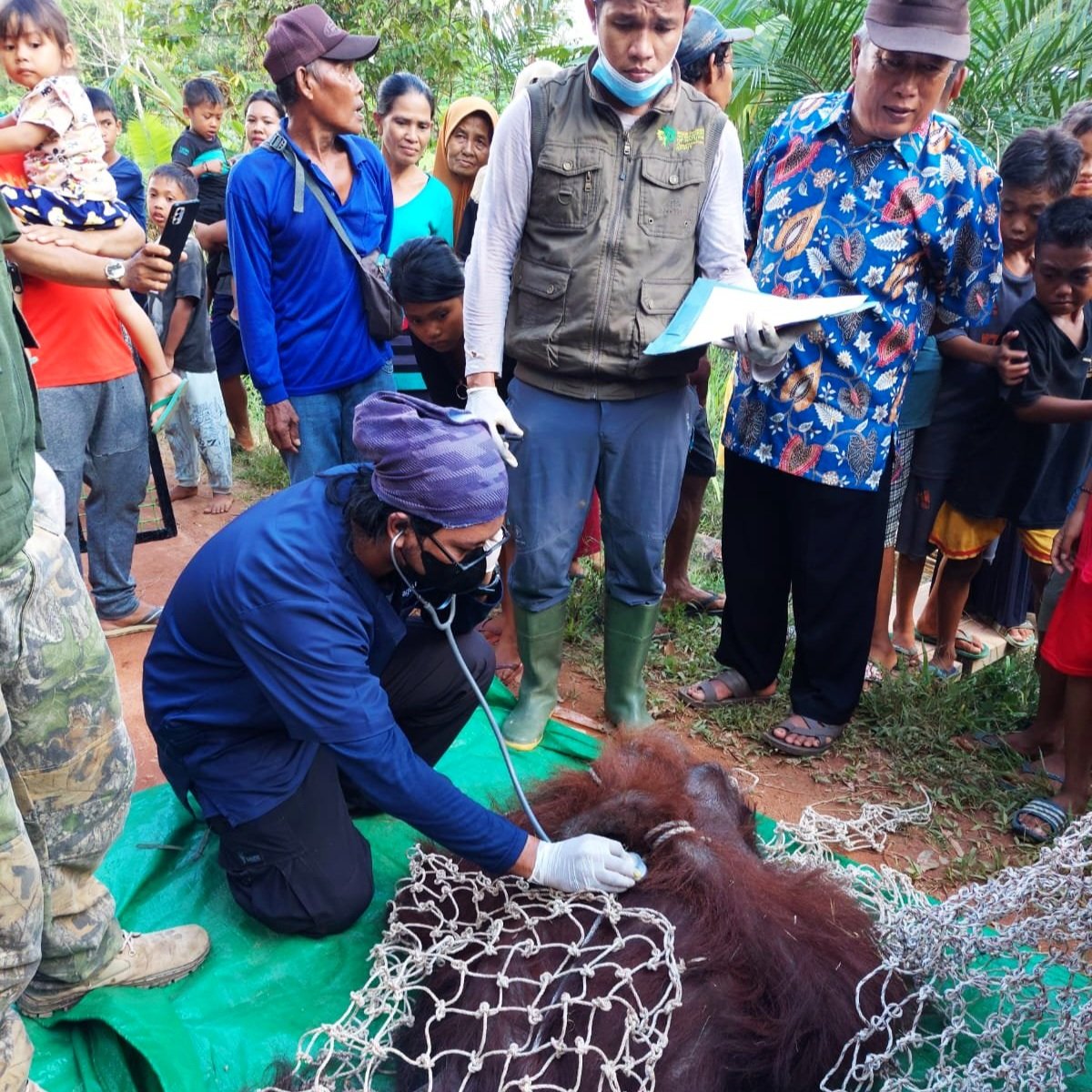In our latest remarkable orangutan rescue, we’re reminded not only of the challenges facing this critically endangered species, but also the dangers imposed on our wildlife rescue team. Everything doesn’t always go to plan:
Many residents of the small village of Batuah in Central Kalimantan, Borneo, rely on farming as a source of food and revenue. Situated on the outskirts of Sampit, the largest town in the area, Batuah sits beside tropical forest and is therefore frequented by wildlife from time to time.
Over the past year or so, one villager had been keeping his eye on a male orangutan that seems to reside in the forest nearby. That was until recently when the primate was seen a few days in a row in their orchards eating pineapples and jackfruit. To avoid a potentially hazardous encounter, it was time for government officials BKSDA and Orangutan Foundation’s rescue team to swing into action.
Arriving at the scene, our team could see that they might have a struggle on their hands. Although the orangutan showed no aggression, he was clearly a large and imposing figure, and surrounded by many villagers. For his safety he needed to be tranquilized and translocated to an area where he could roam freely.
Carefully the 55kg male was darted, captured safely in a net, and given a brief once over by our vet. It needed the help of some local people to lift the orangutan and get him into his transport crate. At first sight he had many cuts on his feet, most likely from sharp rattan and rubber trees in the plantation, but more worrying were the number of bullet wounds found on his skin. It’s unclear whether these came from residents of the village or further afield, but before he could be released into the wild, we would need to investigate the great ape’s injuries in more detail without so many people around.
The orangutan was given the name Batuah, after the village, and transported to offices in Pangkalan Bun for inspection. Unfortunately, eight rifle-pellets were found still lodged in Batuah’s skin so he would require minor surgery before being eligible for release.
For his operation, Batuah received an anaesthesia injection to send him to sleep but the large male was still moving while being taken to the surgery table. Carrying out treatment on such a powerful animal is extremely dangerous if they’re not completely anaesthetised so a second half-dose was required to make sure Batuah wouldn’t feel a thing. One, two, and then three pellets were successfully removed without incident, until our vet noticed something- Batuah was starting to move again!
For the safety of everyone involved, the team made the quick decision to end the surgery there and then. Batuah was hurriedly moved back into his transport crate where he could wake up in peace, and thankfully it appeared that the remaining pellets in his skin were not causing any pain or limits to his movement. With another day to gather his strength and recover from his surgery, the great ape would soon be ready to go back to the wild.
The next day our team carried Batuah in his travel crate onto a speed boat and took him upriver into the safety of the Lamandau Wildlife Reserve. They were thrilled to see him dart out of his cage on his release and then sprint up into the forest canopy, safe and free. In his new home, Batuah can roam in confidence without the need to take food from plantations as if he’d never left the forest.
His story is one that perfectly summarises the challenges facing most orangutans in the wild today. The growth of human activity must expand into something, and in many places, it encroaches into forests which in turn leads to more human-wildlife interactions and conflict. The fact that Batuah can now survive in a protected habitat makes him one of the lucky ones, but as our towns and farmlands continue to expand, the number of rescues required will only increase.
In fact as we go to print, we’ve received news that a gibbon has also been rescued from a nearby village having been kept as a pet for seven years. It’s hoped this primate will also be released into the Lamandau Wildlife Reserve.







